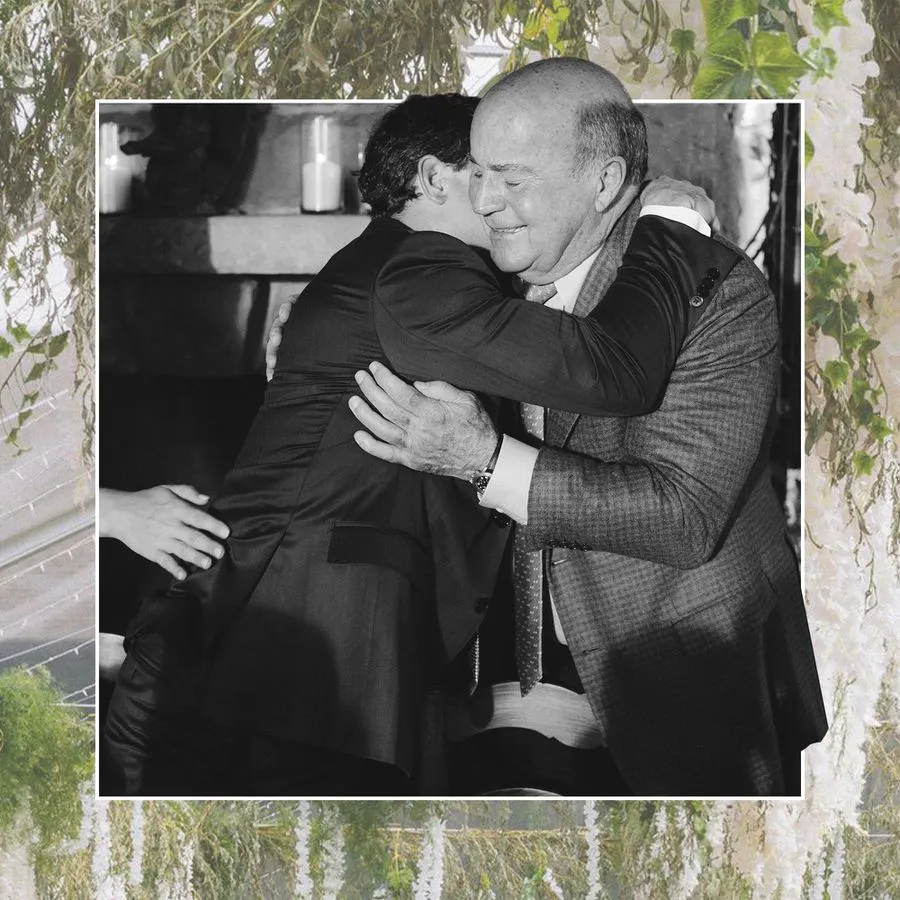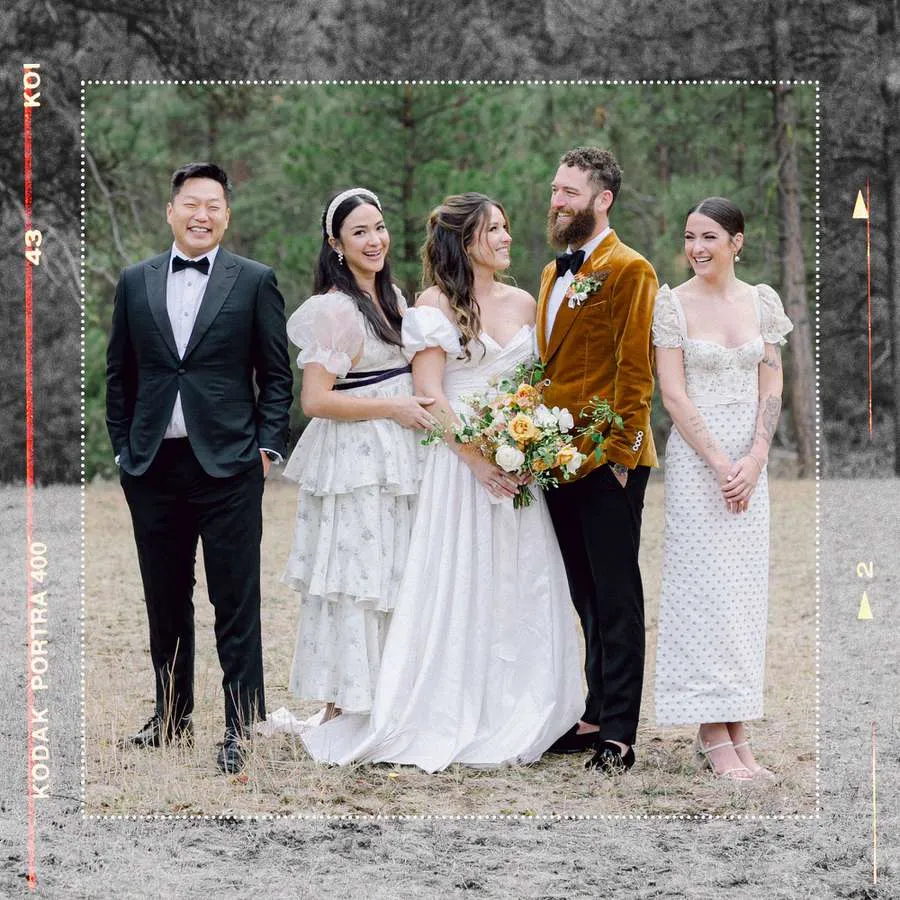Myth 1 The Grooms Parents Always Pay
One of the most pervasive myths surrounding honeymoons is the assumption that the groom’s parents are automatically responsible for covering the expenses. This outdated notion stems from historical traditions where the groom’s family often took on the financial burden of the wedding and related festivities, including the honeymoon. However, modern weddings are increasingly collaborative efforts, with financial contributions often coming from both sides of the family, the couple themselves, or a combination of sources. The idea that the groom’s parents are solely responsible for the honeymoon is an oversimplification that doesn’t reflect the diverse financial arrangements seen in contemporary weddings. Today, couples are more likely to plan and fund their honeymoons independently, while family members may choose to contribute based on their financial ability and willingness to help. Furthermore, cultural and personal preferences play a significant role; some families may adhere to traditional roles, while others embrace a more egalitarian approach to wedding finances. It’s essential to approach the topic of honeymoon expenses with an open mind and be prepared to discuss financial contributions openly.
The Evolution of Wedding Expenses
Understanding the evolution of wedding expenses is crucial for debunking myths. Historically, societal norms dictated that the groom’s family bore most of the financial responsibility. The bride’s family typically covered the wedding dress, invitations, and perhaps some of the reception costs. The honeymoon, considered a post-wedding celebration, naturally fell under the groom’s family’s purview. Over time, as societal expectations shifted, so did the financial dynamics. Today, weddings are often viewed as joint ventures, with both families contributing, or the couple taking on the majority of the costs. This shift reflects changing family structures, the rising costs of weddings, and the increasing financial independence of couples. Couples are now more likely to save for their honeymoons or seek contributions from family and friends. The idea that only the grooms parents pay for the honeymoon is outdated and doesn’t account for the variety of financial arrangements common in modern weddings. The evolving landscape of wedding expenses underscores the importance of open communication and financial planning.
Myth 2 Honeymoon Costs are Always Covered

Another common misconception is that honeymoon costs are always covered by someone other than the couple. While it’s wonderful to have family members or friends offer to contribute financially, it’s not a given. Couples should not automatically assume that their honeymoon expenses will be covered, as this can lead to disappointment and financial strain. The reality is that the couple often funds their own honeymoon, or a significant portion of it. This approach gives them complete control over their travel choices, budget, and overall experience. It’s essential to create a realistic budget for the honeymoon and plan accordingly. Couples may choose to save for the trip, prioritize certain expenses, or explore alternative travel options. Additionally, wedding gifts can sometimes help offset honeymoon costs, but this shouldn’t be the primary financial strategy. Being financially prepared ensures that the couple can fully enjoy their post-wedding getaway without worrying about unexpected bills or financial stress. Open and honest discussions about finances, both with family and with each other, are essential for a stress-free honeymoon planning process.
Understanding Financial Contributions
It’s important to understand the different ways financial contributions can be made toward a honeymoon. Some parents may offer to pay for a specific element, such as flights or accommodation, while the couple covers the rest. Others might provide a lump sum contribution, giving the couple flexibility in how they spend the money. It’s also common for couples to create a honeymoon registry, allowing guests to contribute to various aspects of the trip, like excursions or meals. In some cases, the wedding party might organize a group gift to help cover honeymoon costs. Financial contributions are often made as a gesture of love and support, but it’s crucial to manage expectations. Couples should appreciate any financial assistance they receive while maintaining control over their budget and travel plans. Regardless of the source of funding, open communication and clear agreements are vital to avoid misunderstandings. The focus should always remain on celebrating the marriage and creating lasting memories, rather than financial obligations.
Myth 3 Honeymoons Must Be Extravagant
The idea that honeymoons must be extravagant, expensive trips is a misconception that creates undue pressure on couples. In reality, the perfect honeymoon is about the experience, not the price tag. It’s perfectly acceptable and often more fulfilling to plan a honeymoon that aligns with the couple’s budget and preferences. There are countless ways to create a memorable trip without breaking the bank. This could mean choosing a less-traveled destination, traveling during the off-season, or opting for budget-friendly accommodations like Airbnb or guesthouses. Couples can also save money by taking advantage of travel deals, discounts, and package offers. Instead of focusing on luxury, the emphasis should be on creating meaningful experiences, such as exploring new places, trying local cuisines, and spending quality time together. Furthermore, extravagant honeymoons can sometimes lead to unnecessary debt, placing financial strain on the couple early in their marriage. Prioritizing shared experiences and personal enjoyment over lavish spending allows couples to create cherished memories without financial burden. Ultimately, the best honeymoon is one that reflects the couple’s personality, preferences, and financial comfort.
Budgeting for a Memorable Honeymoon

Budgeting is crucial for planning any honeymoon, regardless of the perceived extravagance. Start by determining a realistic budget based on your financial resources and spending habits. Research potential destinations and estimate the costs of flights, accommodation, activities, meals, and transportation. Be sure to factor in incidentals like souvenirs and travel insurance. Prioritize your must-haves and identify areas where you can save money. Consider creating a honeymoon fund, which can be used for all aspects of the trip. Explore different travel options, such as all-inclusive resorts, cruises, or road trips, to find the best value. Use online tools and resources to compare prices and track expenses. Be flexible and willing to make compromises. It’s essential to stick to your budget to avoid overspending and financial stress. The goal is to create a memorable honeymoon experience without jeopardizing your long-term financial goals. With careful planning and budgeting, you can enjoy an unforgettable honeymoon that aligns with your financial capabilities.
Myth 4 All Wedding Guests Give Gifts
The assumption that all wedding guests will provide a gift, or a gift sufficient to cover part of the honeymoon expenses, is another common misconception. While most guests do give gifts, the value of those gifts varies. It’s never appropriate to expect gifts from guests, and couples should avoid any language or actions that suggest they are expecting financial contributions. Guests attend weddings to celebrate the couple and show their support. The gift is a gesture of goodwill, not an obligation. Financial strain or personal circumstances may limit some guests’ ability to give a gift. The focus should always remain on expressing gratitude for the guests’ presence and celebrating the marriage. If a couple chooses to have a honeymoon registry, it should be presented as an option, not a requirement. It’s essential to approach gift-giving with a sense of generosity and appreciation, regardless of the value of the gifts received. Couples should not base their honeymoon plans on the expectation of receiving gifts. The most important thing is to celebrate the union of two people surrounded by those they love, regardless of the gifts given.
Gift Giving and Honeymoon Funding
While you shouldn’t rely on gifts to fund your honeymoon, they can certainly help. Wedding gifts, whether cash or items, can contribute to the overall cost of the trip. If a couple chooses to create a honeymoon registry, guests can contribute to specific experiences or expenses. It’s crucial to approach this with a sense of gratitude and avoid making guests feel obligated to contribute. Thank you notes should be sent promptly to acknowledge each gift and express appreciation. Consider how you will use the gifts, whether they are towards the honeymoon or other wedding expenses. Be realistic about how much you anticipate receiving in gifts. If you don’t receive enough to cover the entire trip, don’t worry, as it gives you a chance to spend it on something else. Gifts should be seen as a bonus, not a necessity. Prioritize your budget and make financial decisions independently of gifts. When planning your honeymoon, it’s wiser to look at the gift aspect as a supplement and not a core funding strategy.
Myth 5 Honeymoon Planning is Stress Free

The final myth is that honeymoon planning is always a stress-free experience. While the anticipation of a romantic getaway can be exciting, the actual planning process can be demanding. Coordinating travel arrangements, securing accommodation, and managing a budget can be time-consuming and sometimes stressful. It is essential to approach the planning process with a realistic mindset and allow ample time to prepare. Start planning well in advance to avoid last-minute rushes and ensure you get the best deals. Research destinations thoroughly and compare prices from multiple sources. Involve your partner in the planning process to share the responsibility and reduce stress. Create a detailed itinerary, but also leave room for flexibility. Unexpected delays or changes may occur. Embrace the adventure and approach any setbacks with a positive attitude. If possible, consider using a travel agent, who can assist with bookings and provide valuable advice. Delegate tasks to each other or seek help from family or friends. Remember, the goal is to create a memorable experience. Keep perspective, and focus on celebrating your marriage. Take breaks when needed and savor the moments leading up to your honeymoon. Stress is not the desired component of a beautiful beginning.
Planning and Preparing in Advance
Proper planning is essential to minimize stress and ensure a smooth honeymoon. Set a realistic timeline and start planning as early as possible. Create a detailed itinerary, including flights, accommodation, activities, and transportation. Research destinations thoroughly, considering factors such as weather, visa requirements, and local customs. Book flights and accommodation in advance to secure the best deals. Pack efficiently, considering the weather and planned activities. Purchase travel insurance to protect against unexpected events. Make copies of important documents, such as passports and travel itineraries. Communicate openly with your partner and share the planning responsibilities. Consider creating a checklist to ensure that all essential tasks are completed. Before you depart, inform your bank and phone provider about your travel plans. Relax, take deep breaths, and remember the purpose of the trip. The ultimate goal is to celebrate your marriage and create lasting memories together. With careful preparation and a positive attitude, you can minimize stress and enjoy an unforgettable honeymoon experience.
